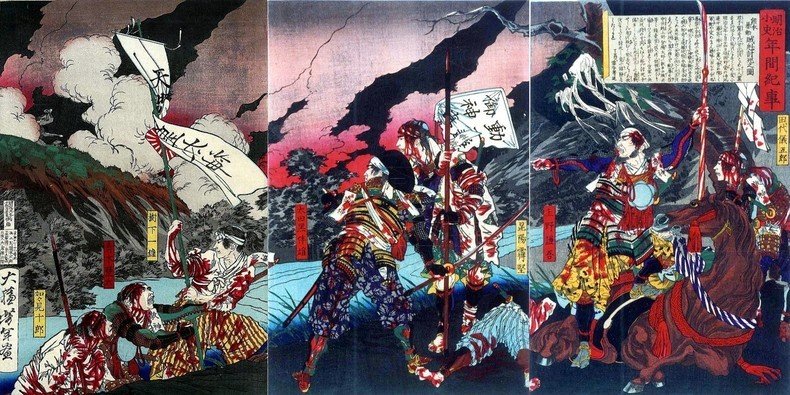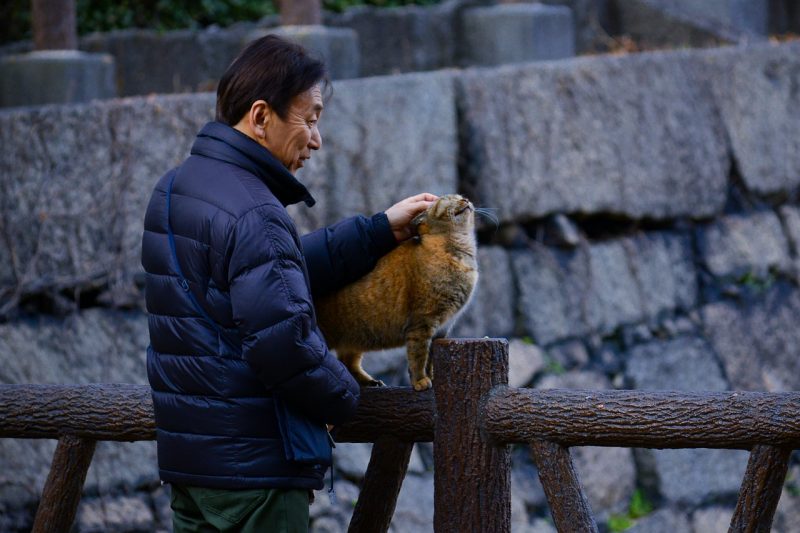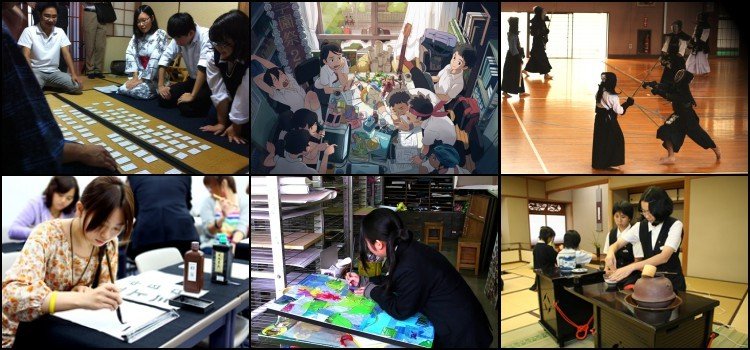Japan is one of the safest countries in the world, where incredibly less than 5 people are murdered with firearms per year. How do the Japanese manage to preserve harmony, meekness and serenity in this troubled world?
Table of Content
Japan was not always peaceful
It may be ironic, but Japan was once one of the most violent countries on earth. Not just because of the events of the second world war, but Japan in its millions of years of history has always lived in war.
Internal and external wars have always happened and Japan has a long history of wars with the famous Samurai, Ninjas, Emperors and a great unfair and disgraced hierarchy.
It wasn't until after World War II that the Japanese changed dramatically in a way that impressed the world. They only achieved this because despite their previous wars, the Japanese were devoted and respectful.

The dedication of the Japanese to work and the education of young people has made Japan a peaceful place. The country was helped by a rich cultural history and customs that became a pillar for the nation to become what it is today.
This shows us that Brazil can change and improve, but for that we need law and organization. We need to change the selfish and ignorant way of thinking of most people in our society.
Harmony in the name of Japan
Have you heard of the kanji wa [和]? This ideogram means harmony, peace, sum, and wholeness. However, people recognize this ideogram as being the Japanese style or Japan. It is present in various words referring to Japan, its art, and culture.
The ideogram [和] is also present in the word nyuuwa [柔和] which means meekness, tenderness, and softness, themes addressed in the article. Note that even the Japanese language refers to Japan as a gentle and harmonious place.

Even the name of the eras of Japan referred to harmony. Many things from Japan, especially traditional things that refer to style, culture, and customs, use the [和] referring to Japan.
For example, wagyuu [和牛] is the Japanese beef; washitsu [和室] is the room in the Japanese style; wafuku [和服] are the traditional clothes of Japan such as the Kimono. Everything from Japan refers to harmony.
Harmony is a word with origin in the Greek language and that indicates an agreement or consonance both in the artistic and social context. Often related to the chaining of simultaneous sounds.
MANSIDENCY IN THE WAY OF THINKING OF THE JAPANESE
The main reason Japan has so much harmony and peace today is in the way the Japanese think. The culture and education of Japan, manages to refine much of the thoughts that cause disgrace in society.
The Japanese are taught humility, obedience, and mildness. These qualities are the complete opposite of the pride, anger and disobedience that ends up being widespread in Brazilian culture, resulting more and more in thieves, corrupt, proud, stressed and violent people.

Nowadays it is increasingly common for a person to get angry and want to fight with someone else for useless things. The Japanese rarely lose their composure and stoop to that level.
We don't want to impersonate anyone, although the Japanese are peaceful, one of the reasons is that they hardly want to go to the trouble of getting into trouble, either to help or to cause them. This can be a bad attitude sometimes.
School and society teach Japanese people to be meek, not to get involved or cause trouble, to be law-abiding. The Japanese are not obliged to follow this path, but there are consequences for those who do not fit into society.
Unfortunately, our Brazil seems to be on the way to winter. It seems here to be honest is to be stupid or to be peaceful is to be lazy. All the result of the impatience of Brazilian society that focuses on fulfilling its own desires rather than making wise decisions.

The biggest mistake of Brazil is the desire to fulfill things immediately without thinking about the next or the future consequences. I wrote exactly about this topic on one of my websites, I recommend reading the article about immediate satisfaction click here.
Japanese customs that result in harmony
If you have ever practiced martial arts, you should remember the rules, respect and dedication that goes into this art. The truth is that almost everything the Japanese do in their culture results in harmony, not disorder.
Classical music is famous in Japan and can be heard in various public places. Students are encouraged to learn to play instruments such as piano and violin. These songs that are part of Japanese culture calm the population, resulting in harmony.

In Brazil, we have an apocalyptic scenario. Unfortunately, most people despise classical and instrumental music, but love songs with lyrics aimed at sex, betrayal, drinking and sometimes even apology for crime and drugs.
If you listen to a calmer, more poetic and romantic song, you are criticized by the new generation. The same thing happens with movies, series, and cartoons. I've lost count of the times I was criticized for not liking excessive violence in the media.
In Japan, people diversify their cultural activities; students have the option to choose a club where they will dedicate a large part of their school life to some type of art or sport that requires a lot of discipline and persistence.
From an early age, Japanese children are taught to take care of school cleaning. It may seem unimaginable to Westerners, but it makes us used to doing things that aren't fun or that we don't like, decreasing our selfishness and helping to accept things in order to keep the peace.

It is small tasks, rules and aspects of Japanese culture that give Japanese people the ability to be meek, peaceful, serene and harmonious. Of course there will always be people opposed to these qualities, just ignore them.
Principles that lead the Japanese to serenity
There are some thoughts and principles that lead the Japanese to serenity, harmony and meekness. In Japanese culture, art, poetry, philosophy and religion there are thousands of aspects that lead to serenity. Let's see some below:
Shouganai – Nothing can be done, it's a Japanese thought where they accept that something is impossible and they can't do anything to solve it. A reminder to accept things as they really are, avoiding negative thoughts.
Mugon-no gyō – Refers to meditation and reflection before doing something or making a decision; Making rash decisions end up causing the person to make mistakes and harm others.

Kodawari – Involves scrupulous and determined attention to detail, motivated by passion and self-discipline, even if this has no recognition or results.
I've also written several articles talking about Japanese cultural aspects and some principles that result in this meekness and harmony. I will end the article with a list of these articles below. We appreciate the shares!
